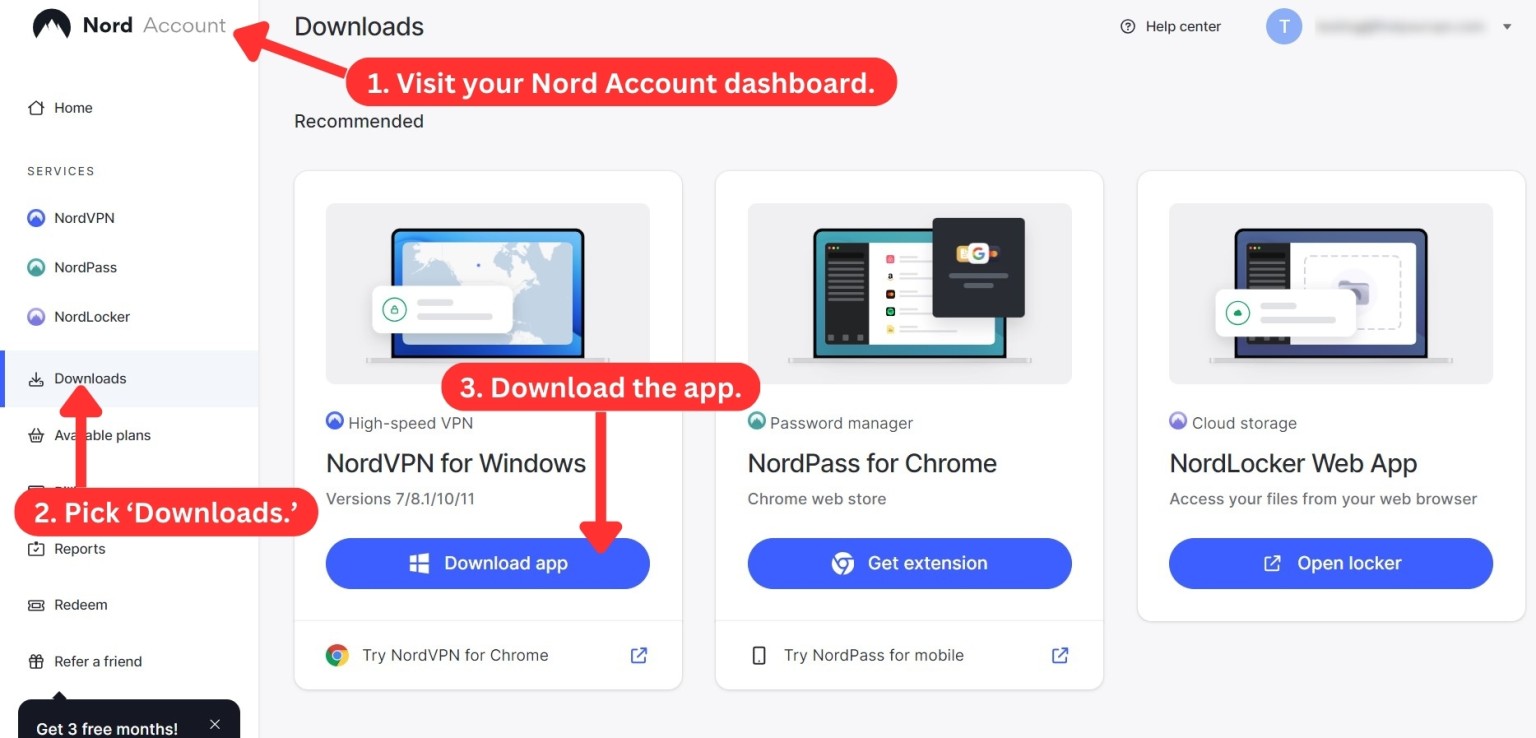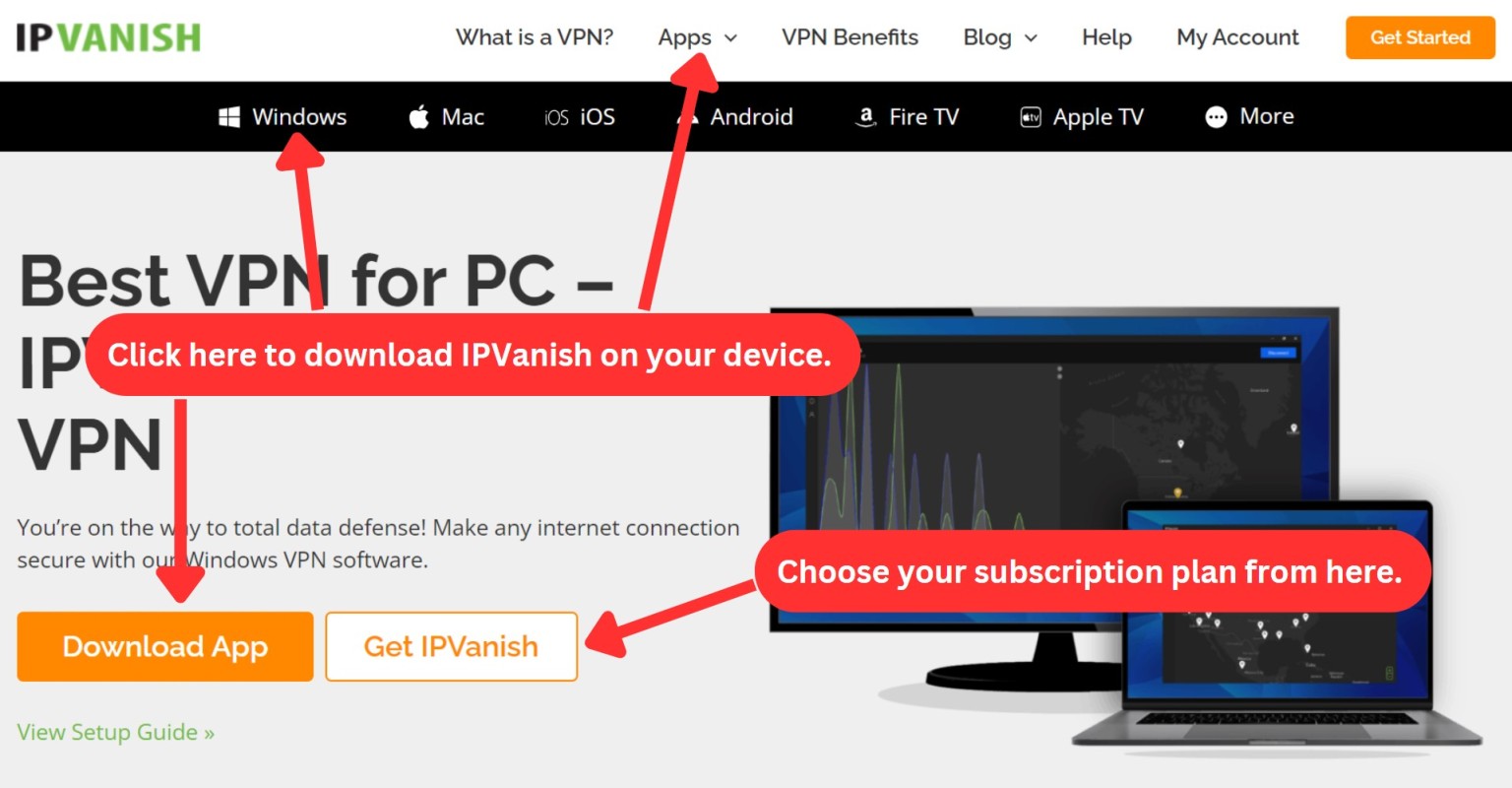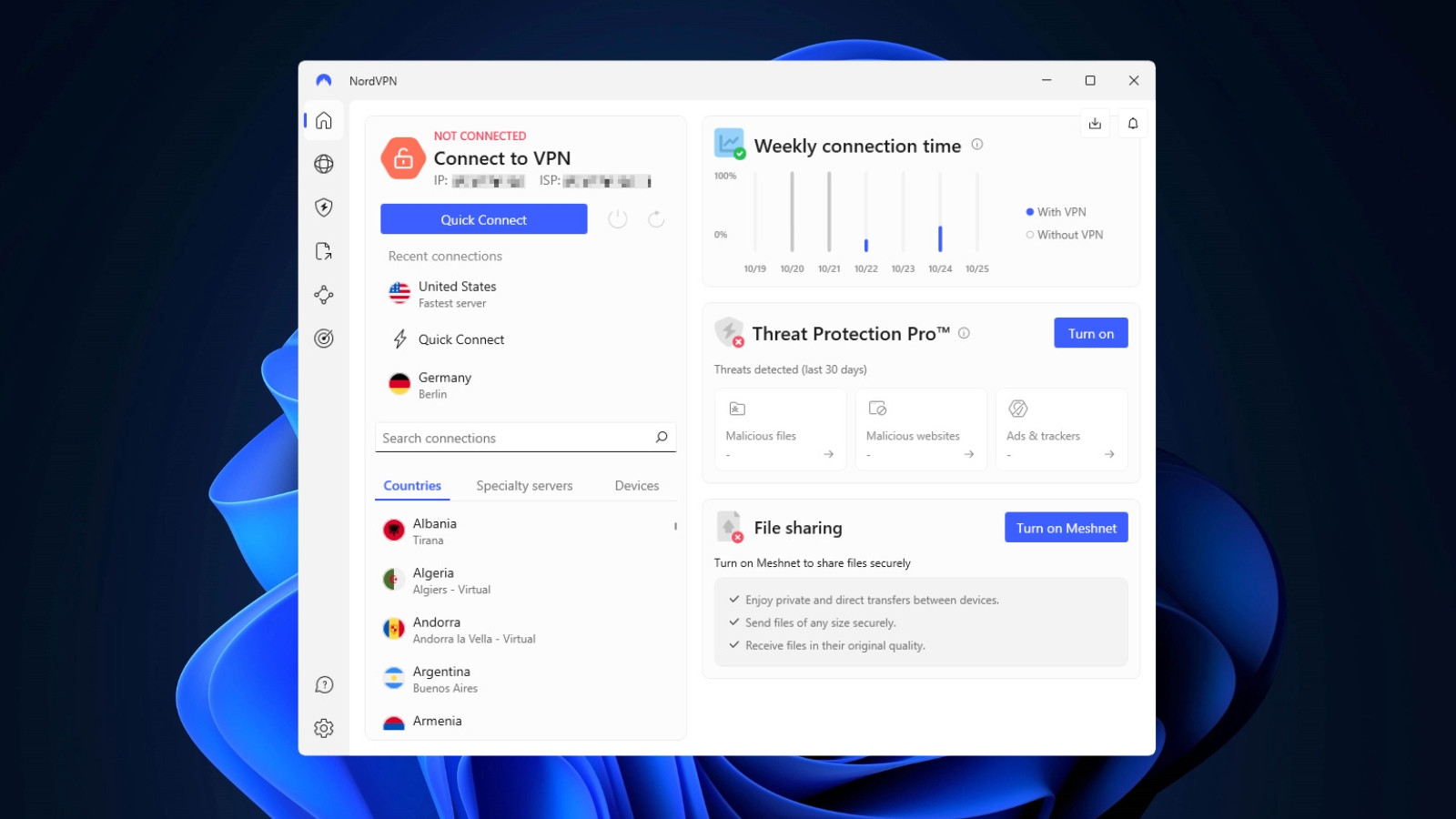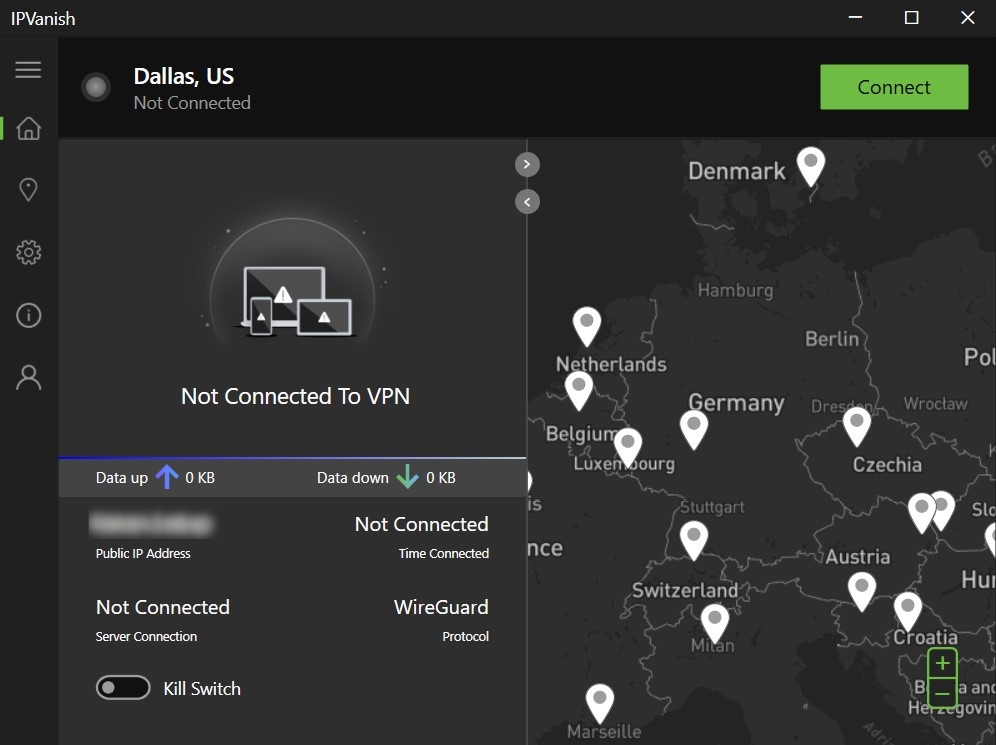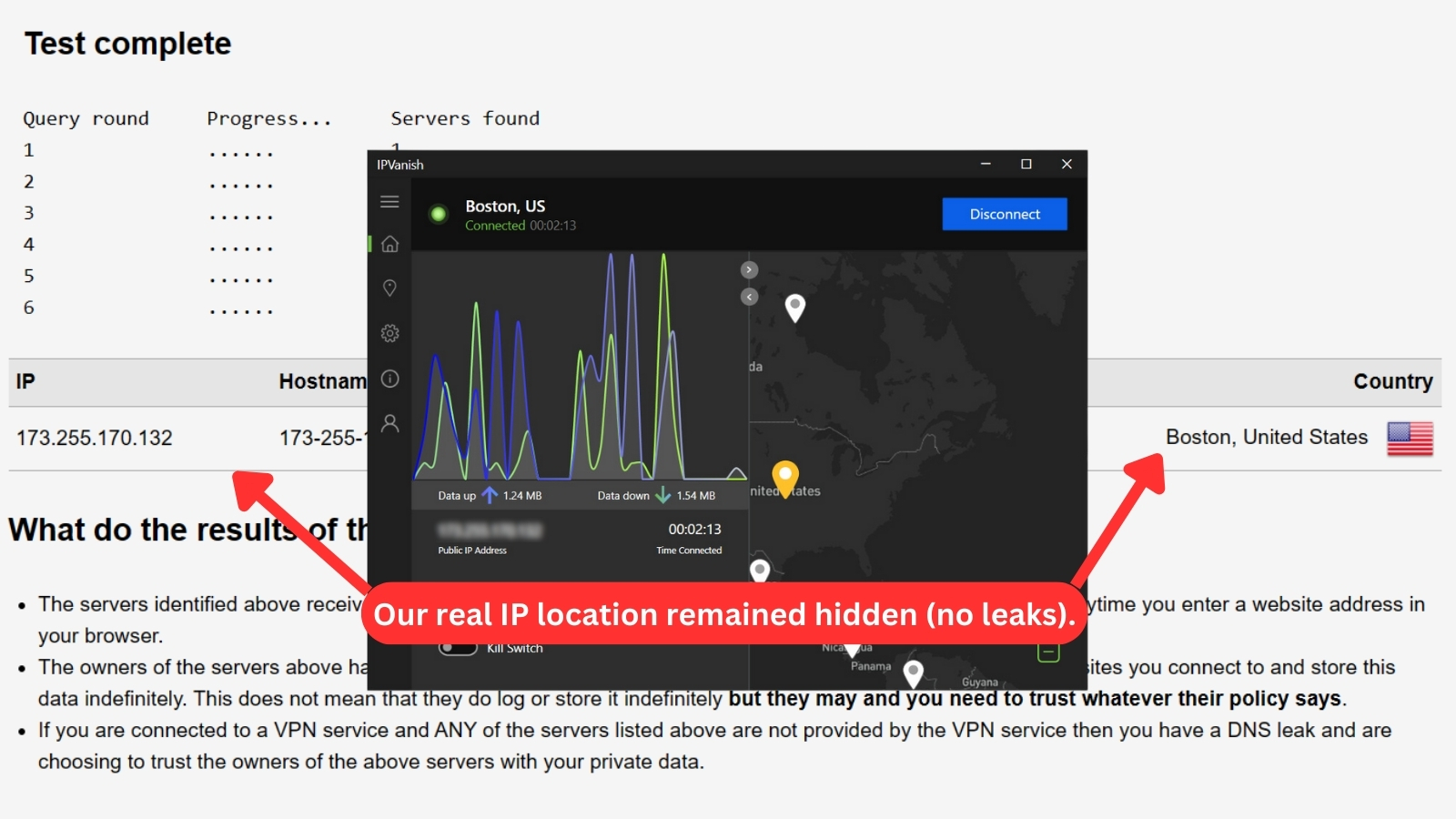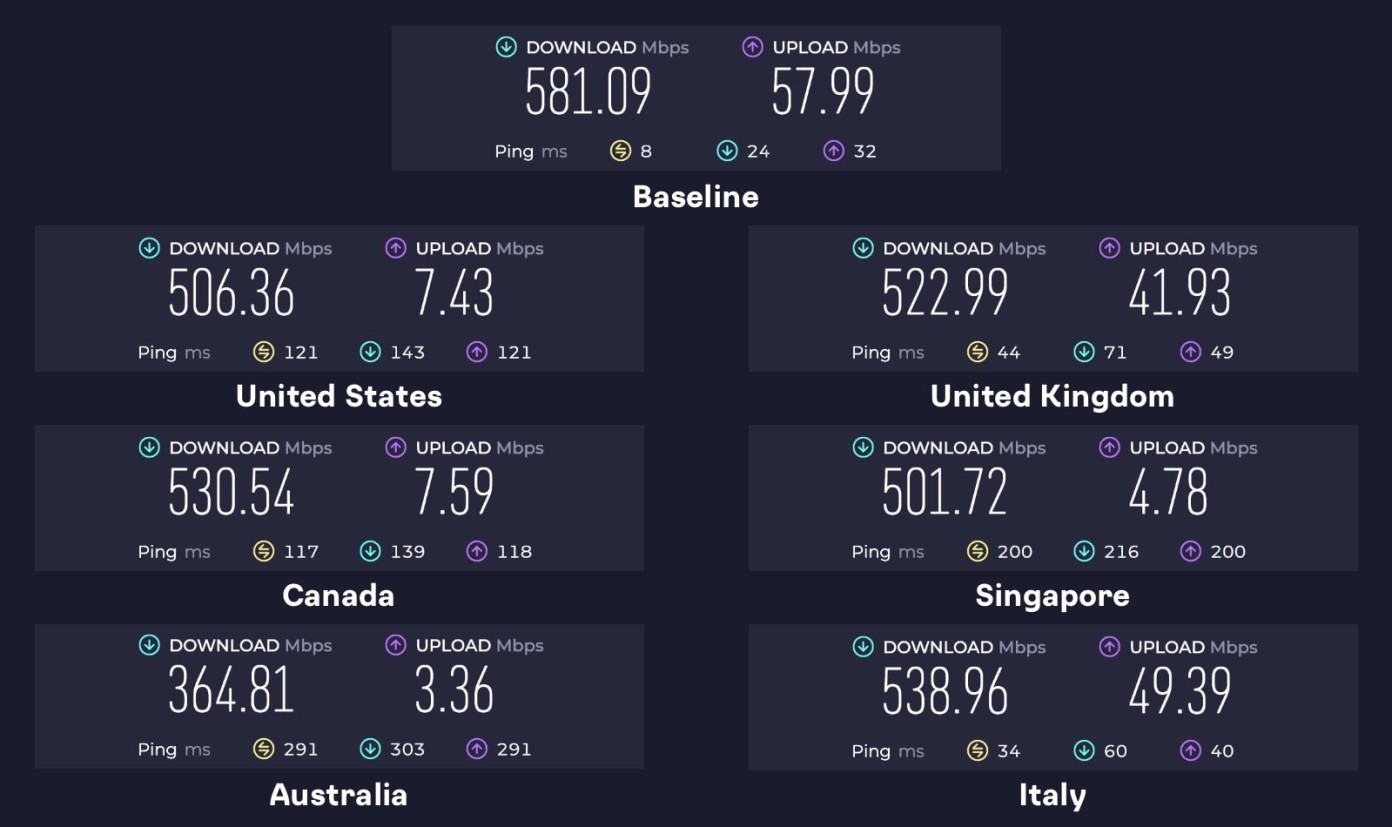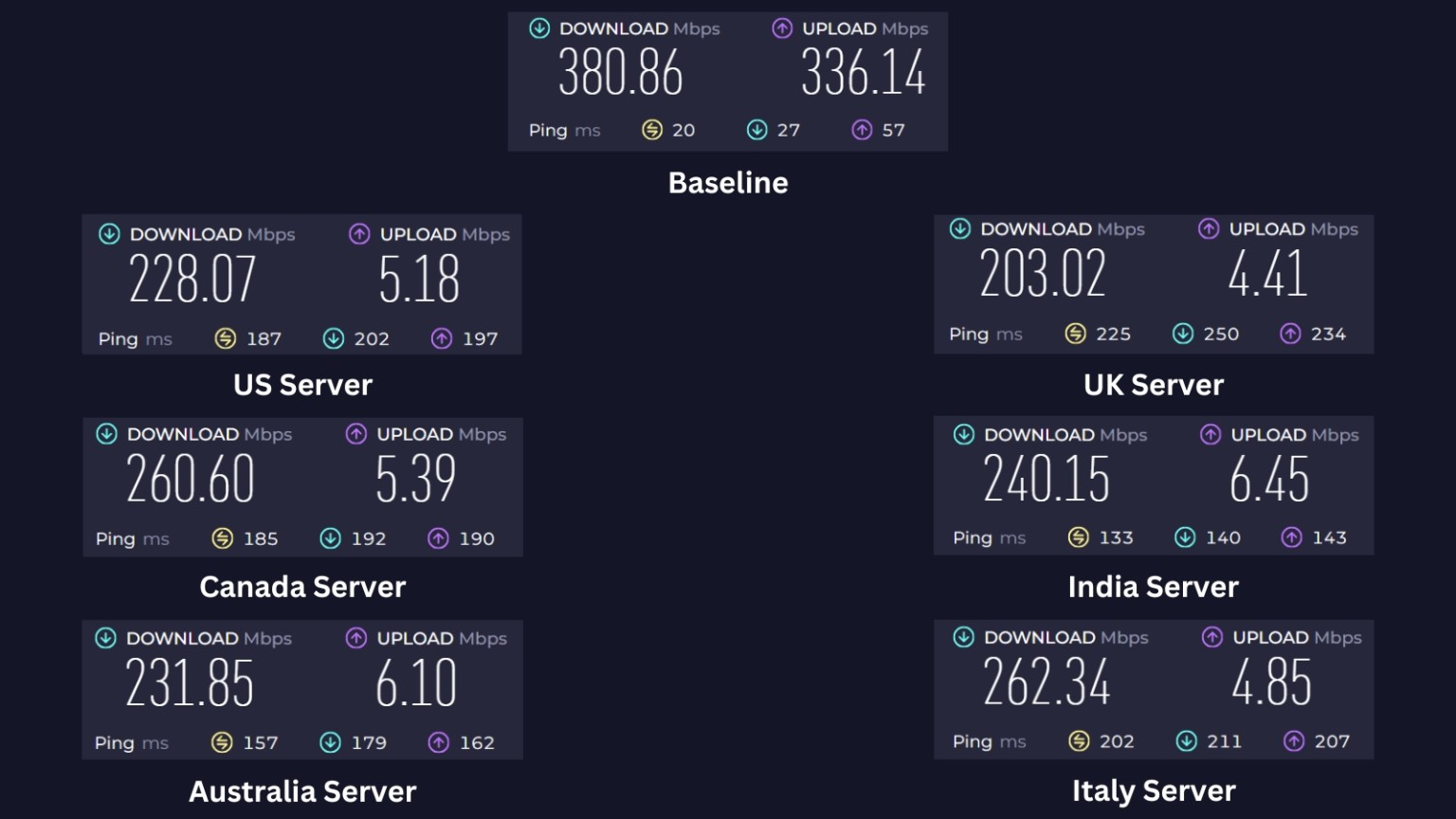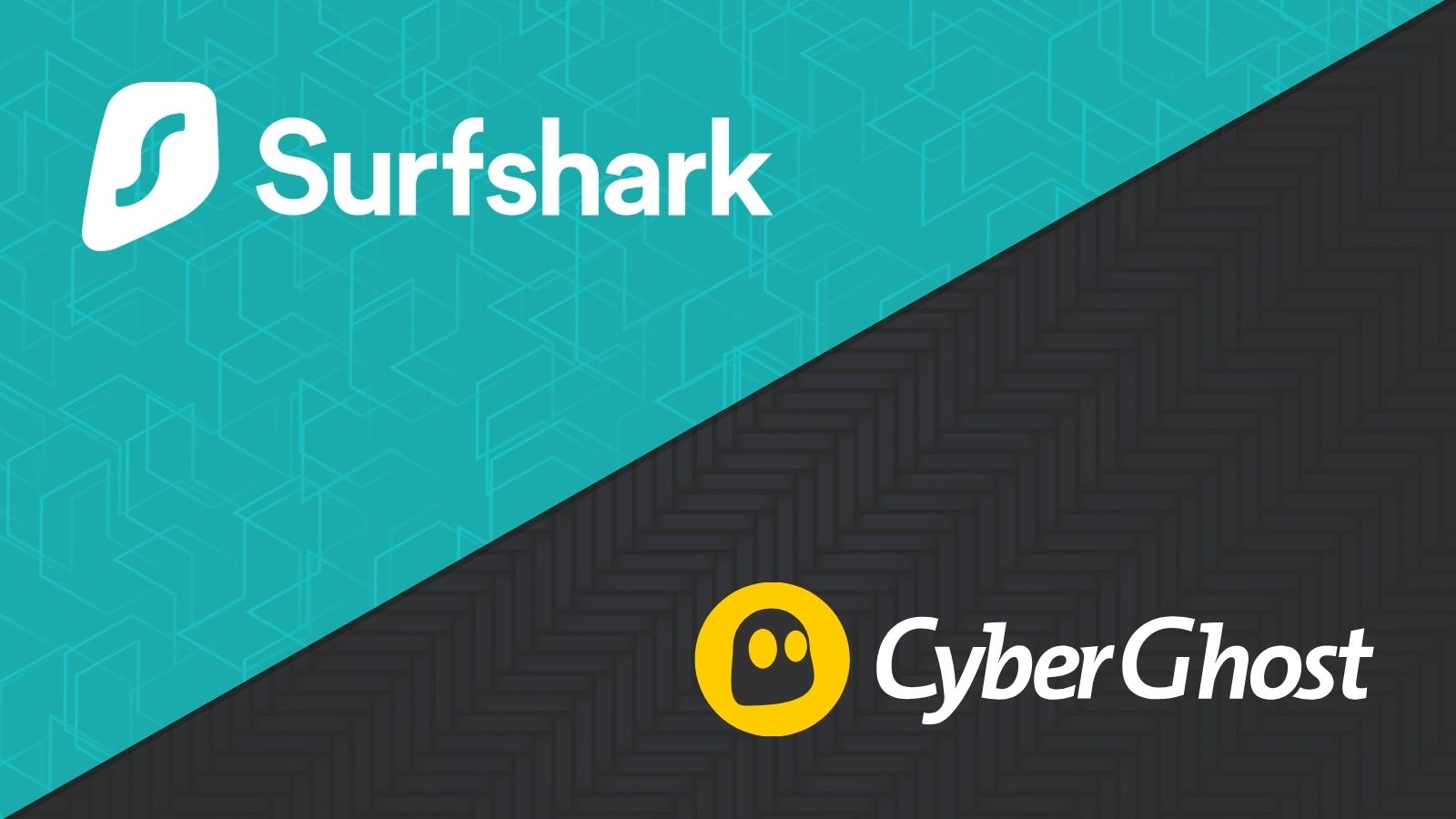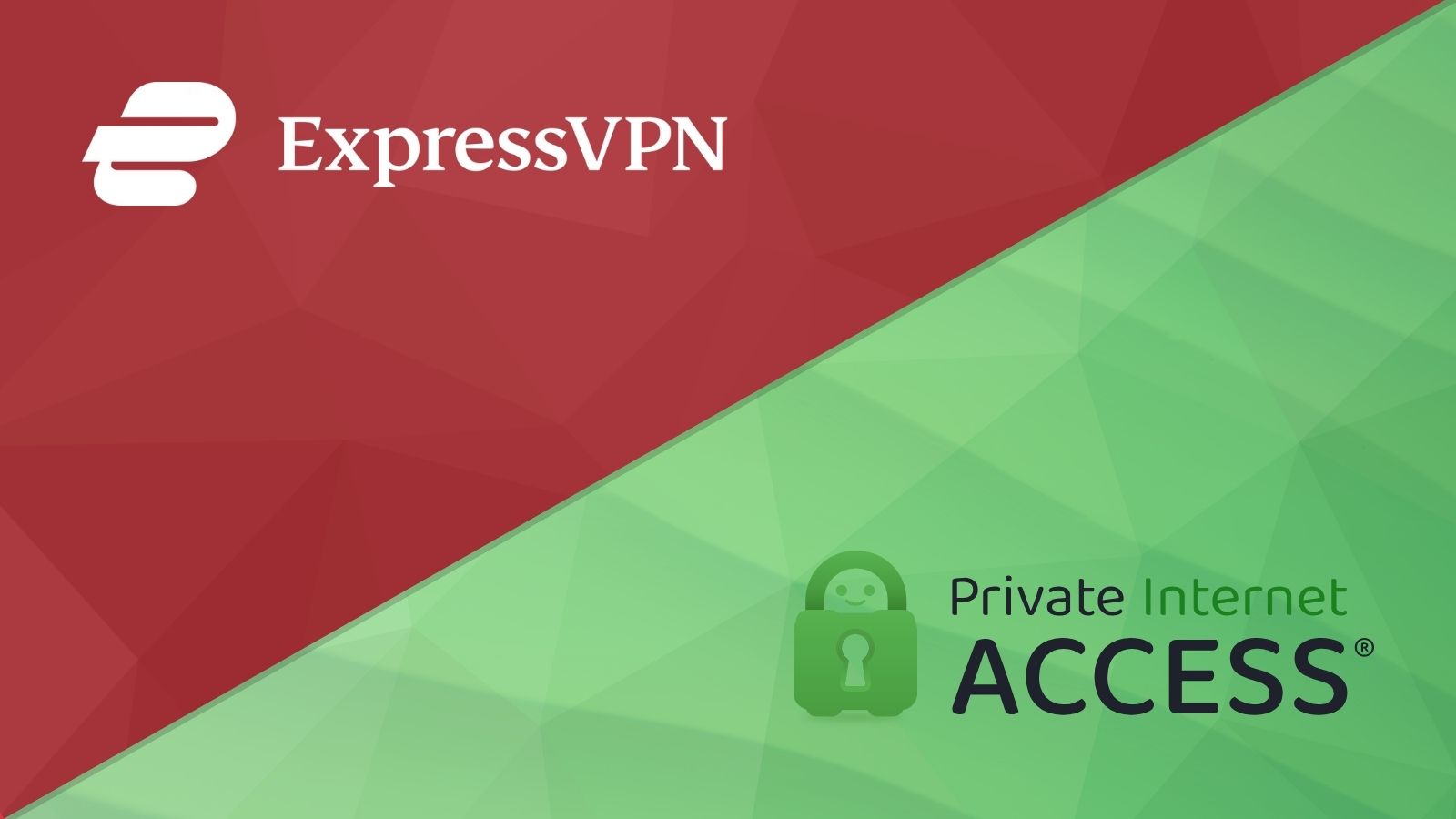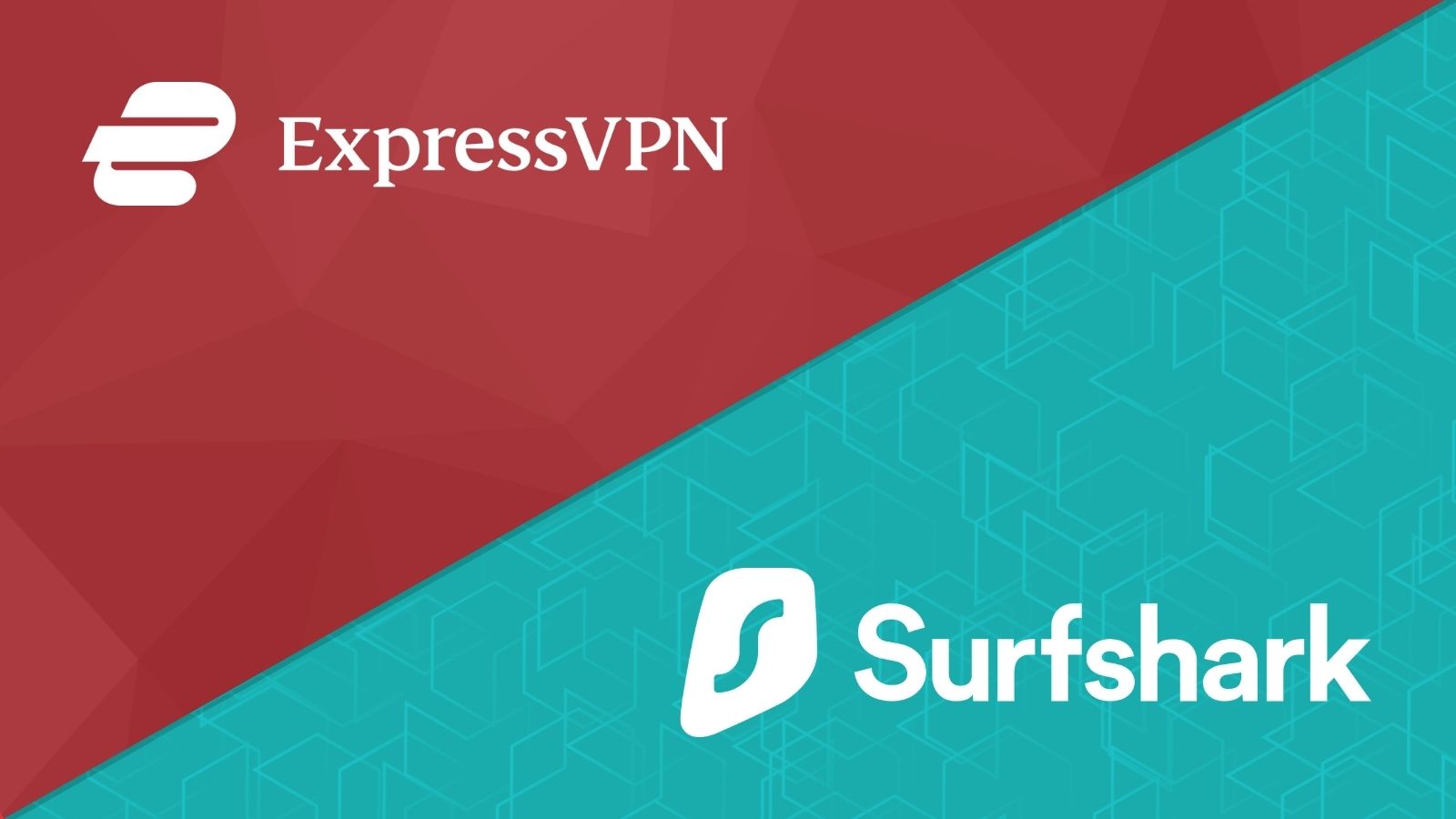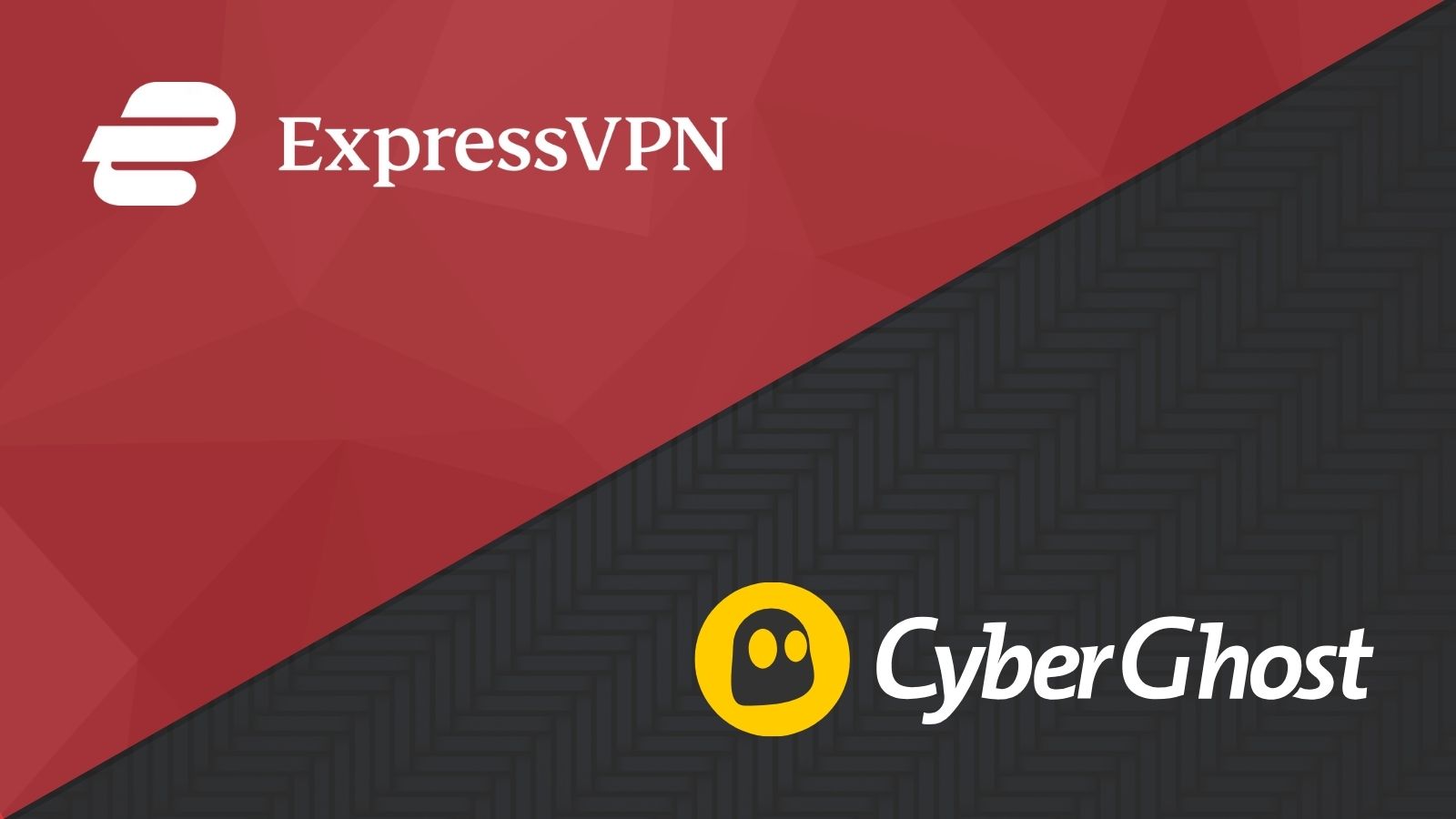When you purchase through links on our site, we may earn an affiliate commission. Here’s how it works.
IPVanish vs. NordVPN 2025
Our experts have reviewed 53 VPN providers, which were put through extensive rounds of testing. To learn more about that process, here’s how we review VPNs, where we explain our criteria and our policy of being fully transparent.
Choosing between IPVanish and NordVPN based on their marketing claims is no easy feat. Both providers bring substantial value to the table, earning them a spot in our guide to the most popular VPNs. Although these VPNs share plenty in common, they retain key differences that may tip the scale in favor of one service.
Founded in 2012, the Panama-based NordVPN is renowned for its vast server network and robust security features. With its no-logs policy and emphasis on privacy-centric features, NordVPN appeals to users who prioritize uncompromised security without sacrificing reliability or speed.
In the same year, IPVanish emerged on the scene, emphasizing customizable connections across an unlimited number of devices. While offering much of the same security perks, IPVanish maintains a smaller server fleet compared to NordVPN’s infrastructure.
This in-depth IPVanish vs NordVPN comparison aims to unveil the differences between the two VPNs to see which one comes out on top. Before we start, let’s take a look at a quick comparison to see how they fare in various categories.
Now that you can visualize the core differences at a glance, we’ll proceed with a more detailed examination of each aspect to help you pick the right service for your needs.
More specifically, we'll take a closer look at both VPNs by checking out their history, server networks, devices they work with, standout features, pricing, how well they handle streaming, gaming, and torrenting, plus their customer support, and more.
Background, Jurisdiction, & Reputation
A VPN’s country of origin, operating jurisdiction, and reputation significantly influence the trustworthiness and privacy standards of the provider. Ideally, you should avoid using a VPN service that’s a member of the 5/9/14-Eyes alliance. Let’s check how NordVPN and IPVanish stack up in this regard.
NordVPN - (Score 8.5/10)
NordVPN has been around since 2012 and is based in the privacy-friendly regime of Panama. The country isn’t a member of the 5/9/14-Eyes alliance and has no mandatory data retention laws that could compromise your privacy. This means that NordVPN can strictly adhere to its no-logs policy and has no legal obligation to collect users’ data or share it with authorities.
The service is owned by Nord Security, which also owns Atlas VPN (now defunct) and Surfshark. However, these VPN services operate independently and have separate development paths. For more information on how NordVPN is set up and its connections with other cybersecurity companies, you can read our guide on the company behind NordVPN.
In 2018, NordVPN had a server breach incident when a hacker targeted a third-party data center. However, this isolated incident was promptly resolved, and no personal data was compromised.
NordVPN undergoes frequent independent audits to verify its no-logs commitment and infrastructure security. Moreover, it operates RAM-only servers, meaning that no data touches the hard drive. This adds another layer of protection to its already strict zero-logs policy.
IPVanish - (Score 7/10)
IPVanish was launched in 2012 and is currently owned by a Ziff Davis brand called NetProtect. The company owns several other VPN services, including StrongVPN, Encrypt.me, and SaferVPN, among others. Although these VPNs fall under a single corporate umbrella, they maintain separate product roadmaps with independent privacy policies and security features.
In 2016, it was revealed that IPVanish shared some personal information with authorities during a criminal investigation despite having a zero-logs policy. This incident dented its reputation. However, the service has changed ownership since then and fully complies with its no-logs policy.
Still, it’s pertinent to note that IPVanish comes from the United States, which is concerning since the US is a member state of the 5-Eyes intelligence-sharing alliance.
Also, unlike NordVPN, IPVanish lacks a RAM-only server architecture, which further raises privacy concerns. However, it has eased some of these concerns by getting an independent third-party audit to verify its privacy commitment.
Who’s the Winner? - NordVPN!
NordVPN is the winner in this category due to its transparent no-logs policy, supported by RAM-only servers and independent audits. Originating from Panama, NordVPN stands outside the jurisdiction of the 5/9/14-Eyes alliance and provides high-end privacy to users.
While IPVanish has changed ownership since the 2016 data-sharing incident, it still falls short in comparison to NordVPN. That said, you should get NordVPN for robust privacy protection.
Supported Platforms & Devices
When choosing a VPN, it’s crucial to ensure broad compatibility across devices and platforms. Both NordVPN and IPVanish offer native apps for all popular operating systems, but let’s see which one comes out on top.
NordVPN - (Score 10/10)
NordVPN stands out for its extensive device compatibility, providing native apps for all popular desktop and mobile platforms. It further extends its functionality to devices supporting the OpenVPN protocol, albeit through manual setup. You also get extensions for Chrome, Firefox, and Edge browsers.
If you're seeking protection across streaming devices, you can install NordVPN on FireOS, Android TV, and Apple TV. Additionally, you can configure NordVPN on any router that supports OpenVPN. Of course, you’ll have to set up NordVPN on your router manually. The process isn’t overly complex, though NordVPN’s support is always available for help when needed.
NordVPN allows up to 10 devices at once under one account, which is significantly less than what IPVanish offers. However, NordVPN’s extensive platform compatibility still makes it a great choice.
IPVanish - (Score 8/10)
IPVanish does an excellent job of ensuring comprehensive coverage for all popular operating systems and gadgets, including Apple Vision Pro. Unlike NordVPN, you can use IPVanish on an unlimited number of devices at once, which is rare in the commercial VPN space.
With IPVanish, you get polished apps for desktop and mobile platforms, as well as media streaming devices like Android TV, Amazon Fire TV, and Apple TV. However, the lack of Web browser extensions places IPVanish behind NordVPN. It’s essential to note that browser extensions function as mere proxies and don’t provide the comprehensive protection of VPNs.
Additionally, IPVanish supports manual setup guides for popular router models, such as DD-WRT, Tomato, and Merlin. For those seeking pre-installed and pre-configured routers, IPVanish collaborates with its partner, FlashRouter, to offer this convenient option.
Who’s the Winner? - NordVPN!
NordVPN and IPVanish both provide strong support for diverse devices and platforms. However, NordVPN holds a slight advantage due to its broader compatibility with routers and browser extensions. So, it’s best to get NordVPN to enjoy seamless compatibility across devices.
Installation & Initial Configuration
Setting up a VPN should be a hassle-free experience. It should aim for a user-friendly installation process with native apps to ensure maximum efficiency. So let’s see which VPN adopts a more effective approach in this NordVPN vs IPVanish round.
NordVPN - (Score 10/10)
NordVPN has a smooth installation process suitable even for VPN beginners. The compact setup file facilitates quick downloading even on slow connections.
To begin using NordVPN, simply sign up for a subscription either through the official website or the app store. We recommend using NordVPN’s website for a 30-day refund if you’re unsatisfied with the service.
Once registered, access NordVPN’s dashboard to download the relevant app for your device. You can also set up NordVPN on different routers. While the installation process may vary depending on your router model, the instructions are simple and easy to follow.
IPVanish - (Score 10/10)
Like NordVPN, signing up for IPVanish and downloading its apps takes just minutes and requires no technical expertise. You’ll need to subscribe via the provider’s official website, download the relevant setup file, and install the app before you can use it.
The convenience extends to mobile devices and media streaming platforms. You can find the IPVanish apps for your device across all popular digital stores like Google, Apple, and Amazon.
Although setting up IPVanish on routers involves manual configuration, you’ll find detailed instructions and tutorials to have you ready within minutes.
Who’s the Winner? - It’s a Tie!
Both IPVanish and NordVPN feature quick setups and simple sign-up procedures, making it hard to choose a winner in this category. The installation files are small and have no bloatware, so they take up less space on your hard drive.
If you get NordVPN, you’ll be able to test all its features with a few simple clicks. The same goes if you get IPVanish, as it follows a comparable approach, allowing users to set up and establish a connection within minutes.
Prominent Features
A good VPN should cover all the basics and provide some advanced features that enhance functionality. In this section of our IPVanish vs NordVPN comparison, we’ll take a look at the standout features of the two services and see what each has to offer.
NordVPN - (Score 10/10)
NordVPN provides a good mix of basic and advanced VPN features. It nails VPN fundamentals by providing solid VPN encryption standards, an automatic kill switch, and split tunneling (available for Windows and Android) capabilities.
You also get built-in leak protection to protect your real IP from prying eyes. Besides, the provider allows unlimited server switching and doesn’t cap data or bandwidth usage.
With NordVPN, you can also get a dedicated IP address available in select countries, including the US, Canada, France, Germany, Japan, the UK, and the Netherlands. The feature is available for an additional $8.99 if you’re subscribed to the monthly plan.
A standout feature of NordVPN is 'Threat Protection Pro,' which blocks ads, prevents trackers, and scans files for malware, along with advanced browsing security. It also offers additional perks like double VPN servers, which route your Internet traffic through two servers for added protection.
IPVanish - (Score 7.5/10)
IPVanish delivers core VPN features, offering a kill switch consistently available across Windows, macOS, Android, iOS, and Fire TV. Their split tunneling offers even more flexibility, working on both app-based connections (Windows, Android, and Fire OS) and domain-based connections (Windows, macOS, iOS, and Apple Vision Pro).
To rival NordVPN’s obfuscation, IPVanish uses 'Scramble' to add obfuscation to OpenVPN traffic. With this feature, you can bypass VPN blocks or firewalls and access restricted content. IPVanish doesn’t limit data and bandwidth usage and supports unlimited server switching.
Moreover, IPVanish supports advanced VPN protocols like WireGuard, IKEv2, IPSec, and OpenVPN. For an extra layer of protection, IPVanish also offers 'Threat Protection,' similar to NordVPN.
However, unlike NordVPN, IPVanish doesn't provide dedicated IP addresses. So, you've got to explore VPNs with dedicated IPs if you want to use a single IP address every time you access a network.
Who’s the Winner? - NordVPN!
Based on the analysis, NordVPN takes the lead in terms of prominent features. It goes the extra mile with advanced features like split tunneling, double VPN, and dedicated IP addresses, setting it apart from IPVanish.
So, get NordVPN if you want all the basic privacy features and some advanced ones to boost your security significantly.
Server Count & Infrastructure
An extensive server network spanning across the globe is crucial for VPN performance. In this section, we delve into the server fleet and infrastructure of NordVPN and IPVanish to draw comparisons between the two VPNs.
NordVPN - (Score 10/10)
NordVPN impresses with over 7,000 servers in 118 countries, ranking it among the best VPN with most servers. With its widespread server presence across Asia, North America, and Europe, you can expect minimal overcrowding and no throttle on your Internet connection.
The provider offers some advantages, such as 'double VPN,' which routes your traffic through two servers for extra protection. It also hosts obfuscated servers to avoid VPN blocking and dedicated P2P options for faster and more efficient file sharing. Their standard servers are also great for streaming and gaming.
Moreover, NordVPN’s infrastructure consists of physically colocated servers and 50+ virtual server locations. It’s a major benefit, as it allows NordVPN to offer a wider range of server locations, including regions where physical data centers might not be feasible.
IPVanish - (Score 9/10)
IPVanish maintains over 2,400 servers spanning 100+ countries. Although not as extensive as NordVPN, IPVanish has strategically placed its servers to cover popular VPN regions like the US, Canada, Australia, and the UK.
Similar to NordVPN, IPVanish offers virtual server locations, but only in India. The company owns its entire fleet of physical servers, meaning no third party is involved.
However, IPVanish doesn’t provide specialty servers, making it hard to pick the right server for relevant purposes like media streaming, gaming, and torrenting. Despite the lack of dedicated servers, regular IPVanish servers support all these activities without issue.
Who’s the Winner? - NordVPN!
Based on the network scale alone, NordVPN wins with 7,000+ servers in 118 countries. More importantly, it has some unique offerings like double VPN and specialty servers that cater to specific use cases like enhanced encryption and P2P traffic.
For these reasons, you should get NordVPN and take advantage of its comprehensive and versatile server infrastructure.
UI/UX Design & Ease of Use
Both NordVPN and IPVanish provide intuitive apps that cater to a wide range of devices and platforms. In this section of our NordVPN vs IPVanish comparison, we’ll explore how each VPN stacks up in terms of user-friendliness and design.
NordVPN - (Score 10/10)
NordVPN is characterized by intuitive design across desktop and mobile applications. The interface exudes simplicity without compromising on functionality. Both desktop and mobile apps feature an interactive map that allows you to effortlessly connect to your preferred locations with a single click.
Alternatively, you can also find the full list of server locations on the left-hand side of the home screen. The list encompasses dedicated IPs, double VPN, obfuscated servers, Onion over VPN, and P2P-specialized servers. The main screen also provides quick access to 'Settings,' where you can easily customize your VPN connection.
The mobile applications mirror the streamlined interface of their desktop counterparts. They greet you with a similar interactive map on the main screen, which you can use to connect to servers. Connecting to locations is also hassle-free, and it often takes a few seconds to establish a connection. Overall, NordVPN ensures a seamless experience for both novice and expert VPN users.
IPVanish - (Score 8/10)
IPVanish works well on desktop and mobile platforms. Although it doesn’t have the most modern-looking interface, it's still easy to use.
When connected, the home screen offers real-time stats with helpful information such as your current IP location, server connection, and VPN protocol used. Like NordVPN, it also features a 'Connect' button on the right side area of the main screen for a swift server connection.
On the left-hand side, you can explore the full list of servers and an accounts tab containing basic information about your account. You can also fine-tune your experience by accessing IPVanish's settings.
Compared to the desktop apps, the mobile apps have a cleaner layout, ensuring effortless navigation. Just like the desktop versions, they offer a dedicated 'Help' section for quick reference. But where mobile truly shines is its direct access to IPVanish's live chat support. This eliminates the need to switch to a Web browser, allowing you to get help right within the app.
Who’s the Winner? - NordVPN!
NordVPN wins this round of the IPVanish vs NordVPN comparison due to its focus on functionality over aesthetics. It offers a really polished interface with an interactive map and diverse specialized servers available across the board.
If you want uniform features and the same level of user-friendly experience across all platforms, you should get NordVPN.
Media Streaming, Torrenting, and Gaming Support
Beyond privacy and data protection, a VPN should unblock streaming services and facilitate gaming sessions. It should also support P2P traffic without revealing your true identity. Let’s see how well NordVPN and IPVanish perform in these areas.
NordVPN - (Score 10/10)
NordVPN works with Netflix and excels at bypassing geo-restrictions on other major streaming platforms like Max, Hulu, Disney+, Prime Video, and BBC iPlayer. It doesn’t label streaming-optimized servers but reliably grants access by connecting to a server in the target region. Its SmartPlay feature also ensures smooth, high-quality streaming experiences on multiple devices.
Additionally, NordVPN is a great choice for P2P traffic, thanks to its specialized peer-to-peer (P2P) servers. NordVPN for P2P sharing, based on our tests, worked exceptionally well when we used OpenVPN and WireGuard (NordLynx) protocols.
NordVPN also supports gaming on all servers, allowing you to bypass geo-restrictions for a truly borderless gaming experience. We’ve tried using NordVPN with Warzone, and it worked without a hitch. Plus, the VPN maintains fast speeds and low latency and ping, ensuring smooth gameplay without any interruptions.
IPVanish - (Score 8/10)
IPVanish also reliably unblocks streaming services like Netflix, Prime Video, Hulu, and BBC iPlayer with its extensive server network. Like NordVPN, it doesn’t provide labeled servers optimized for streaming, so you’ve got to manually test different servers to find the ideal location.
However, IPVanish displays real-time server loads and ping information before connecting, so you can preview performance and choose the fastest server. This also helps optimize IPVanish for gaming, resulting in low ping and latency for smooth gaming.
IPVanish doesn’t offer dedicated P2P servers but provides a SOCKS5 proxy to optimize your connection for torrenting. However, it’s a good idea to be careful because the provider is in the US, which has strict copyright laws.
Who’s the Winner? - NordVPN!
The availability of specialized servers and diverse protocols gives NordVPN a slight edge in streaming, gaming, and torrenting. With the SmartPlay feature and NordLynx protocol, NordVPN ticks most of the boxes in this section.
If you get NordVPN, you can practically access all popular streaming platforms and unlock speedy downloads and fast gameplay.
Security & Privacy
Security and privacy are major selling points for a VPN. Both NordVPN and IPVanish do an excellent job of protecting your data and keeping you safe online. Let’s see what each VPN brings to the table in this category.
NordVPN - (Score 9.5/10)
In terms of security and privacy, NordVPN is as secure as it gets. It utilizes the industry-standard AES-256-bit encryption and offers highly secure protocols, including OpenVPN, IKEv2/IPsec, NordLynx (based on WireGuard), and NordWhisper.
NordVPN doesn't keep logs, and this is verified more than once through independent audits. It also takes privacy seriously by using RAM-only servers, so your data gets deleted as soon as the VPN is turned off.
Moreover, NordVPN’s tunneling protocols are leak-proof and frequently tested. We ran extensive DNS, IP, and WebRTC leak tests, but NordVPN passed each test with flying colors.
IPVanish - (Score 9/10)
Like NordVPN, IPVanish uses AES-256-bit encryption and offers a choice between OpenVPN, IKEv2, IPSec, and WireGuard protocols. It also provides an 'OpenVPN Scramble' feature meant to protect against censorship and the challenges of deep packet inspection (DPI). This feature disguises your VPN traffic as regular Internet traffic, making it ideal for regions that closely monitor and block VPN traffic.
IPVanish claims to maintain a no-logs policy, but this assertion was challenged when it shared logs with the authorities in 2016. However, the company has changed ownership and amended its privacy policy since then. It also underwent an independent security audit that proved its no-logs claims.
We also ran several IP/DNS leak tests and couldn’t detect any data leaks. IPVanish successfully masks our real identity with a virtual IP from our connected location.
Who’s the Winner? - NordVPN!
Again, NordVPN wins this round due to its more reliable track record and leakproof security features. It uses RAM-only servers and is based outside the 5/9/14-Eyes alliance, making it a more secure option. Therefore, get NordVPN if you seek high-end security and unparalleled protection for all your online activities.
Speed & Performance
Strong security and privacy measures may occasionally affect speed. Let’s see whether this applies to NordVPN and IPVanish in this comparison segment.
NordVPN - (Score 9/10)
NordVPN demonstrates commendable performance, offering ultra-fast speeds across nearby and distant servers. During our tests, NordVPN slowed us down by 15% on average, making it one of the fastest VPNs available today.
As you can see, NordVPN’s speed never dropped below 364 Mbps, which is more than enough to watch HD and even 4K streaming without interruptions. You can also stream or play games on multiple devices without noticing any significant dip in performance.
Although you may occasionally encounter slow speeds on remote servers when using OpenVPN, you can easily boost your performance by opting for the proprietary NordLynx protocol.
IPVanish - (Score 7/10)
In contrast to NordVPN, IPVanish showed a much higher average speed reduction of 38%. While we could still perform our favorite online activities using the right servers, its performance was behind NordVPN.
IPVanish boasts speed and power, yet in our speed tests, its performance showed inconsistency across different server locations. To ensure optimal speeds, you might need to experiment with connecting to both nearby and distant servers. It doesn't quite reach the top tier in 'consistent' performance, but it's not a complete letdown either.
Who’s the Winner? - NordVPN!
NordVPN outperformed IPVanish, as it didn't slow us down much, even when connecting to distant servers. This makes NordVPN one of the fastest VPNs available, offering reliable connections across its vast network. If you care more about speed and prefer consistent performance, you should get NordVPN.
Customer Support
Whether you’re an expert or a beginner at using a VPN, it’s important to get timely support when needed. This segment of our IPVanish vs NordVPN explores the level of support offered by each VPN.
NordVPN - (Score 10/10)
NordVPN provides multiple support channels, including 24/7 live chat and email support. The live chat typically offers quicker assistance, making it ideal for queries that need immediate resolution. On the other hand, email support takes a little longer but provides a thorough resolution.
In addition, the provider offers extensive installation guides and a comprehensive FAQ section. NordVPN also features a dedicated support page with several categories and a search option to find answers to your queries. It operates a helpful blog and regularly updates it with useful information about VPNs and online security in general.
IPVanish - (Score 10/10)
IPVanish offers a variety of support options similar to NordVPN’s offerings. It features a responsive live chat option, with knowledgeable reps available 24/7 for assistance. Additionally, you get email support, which is ideal for resolving queries if you’re not in a rush.
The company further extends direct phone support, which is probably the fastest way to get your questions answered. If you're seeking detailed installation guidance, IPVanish offers setup tutorials for various devices and platforms. Much like NordVPN, IPVanish maintains an active blog and frequently updates it with useful informational articles.
Who’s the Winner? - It’s a Tie!
Both NordVPN and IPVanish have a lot in common in terms of customer support features. They provide a variety of support options with knowledgeable live chat agents to resolve your issues.
If you get NordVPN, you can rely on an extensive knowledge base and get quick assistance through live chat and email. Similarly, if you get IPVanish, you’ll gain access to both live and on-demand support options to troubleshoot VPN-related issues.
Pricing
Striking a balance between features and pricing is vital when choosing a VPN. Let’s take a closer look at the various subscription plans offered by NordVPN and IPVanish and see if they justify their subscription costs.
NordVPN - (Score 9/10)
NordVPN now offers four subscription tiers: Basic, Plus, Complete, and Prime plans, which you can subscribe for a month, year, or 2 years. Pricing starts at $12.99 for the monthly plan and comes down to just $3.39 per month for the 2-year plan.
The 'Basic' plan includes full VPN protection and standard 'Threat Protection,' along with 10 device connections. The 'Plus' plan adds a password manager, a data breach scanner, and the upgraded 'Threat Protection Pro' feature. If you sign up for the 'Complete' plan, you'll get all these features and 1 TB of cloud storage.
But for an all-in-one VPN solution, the Prime plan (starting at $8.39/month) provides extra perks like comprehensive identity and cyber threat protection, credit monitoring and score tracking, and more. For the full breakdown of costs and options, check out NordVPN's pricing.
Although NordVPN doesn't offer a free plan, they do have a generous 30-day money-back guarantee. This lets you fully test the service and see if it meets your needs. NordVPN's free trial also gives Android users 7 days to try the service before committing to a paid plan.
Aside from that, frequent deals and discounts are available to help you save on your subscription. Although the NordVPN Christmas deal has ended, you can still save by applying NordVPN coupon codes.
IPVanish - (Score 7.5/10)
IPVanish offers three subscription plans tailored to different preferences and budgets. The monthly plan is priced at $12.99. However, you can pay as little as $2.19/month for the 24-month plan, saving up to 83%. Just like NordVPN, the long-term plans are more affordable and provide significant savings and discounts.
IPVanish doesn’t offer a refund for the monthly plan, unlike NordVPN. However, you can request a refund for both the annual and 24-month plans within 30 days of the service. Also, there's no free plan, but you can avail of a 7-day free trial for Android and iOS mobile devices when you choose an annual subscription.
Who’s the Winner? - NordVPN!
Both NordVPN and IPVanish offer multiple subscription plans, but NordVPN takes the lead as it covers all plans with a 30-day money-back guarantee. Despite being slightly expensive, NordVPN provides additional features like Threat Protection Pro, Password Manager, and other perks that make it completely worth it. If you want to get full value for your money, we recommend that you get NordVPN.
IPVanish vs. NordVPN - Which One Is Better?
NordVPN is definitely the top choice in this VPN comparison. First, NordVPN is in a safer jurisdiction than IPVanish. Second, it has more innovative and advanced features, broader server coverage, ultra-fast speeds, and reasonable pricing for what you get.
That said, IPVanish has worked hard to make its service better and is now a solid VPN choice, especially if you're looking for an easy one-click solution. It also lets you protect as many devices as you want, while NordVPN only allows 10.
To see why NordVPN is better, check the table below for scores from our reviews.
Based on the scores above, NordVPN is the best VPN when it comes to crucial benchmarks like infrastructure scale, jurisdiction, speeds, security protocols, prominent features, and more.
Though IPVanish puts up a decent fight with solid fundamentals at competitive pricing, it simply doesn’t scale up to NordVPN’s standards. If you’re after something more reliable and advanced, we'd definitely recommend signing up for NordVPN.
This sums up our IPVanish vs NordVPN comparison. If you’ve got any questions or remarks, feel free to share them with us in the comments below. Thanks for reading!

